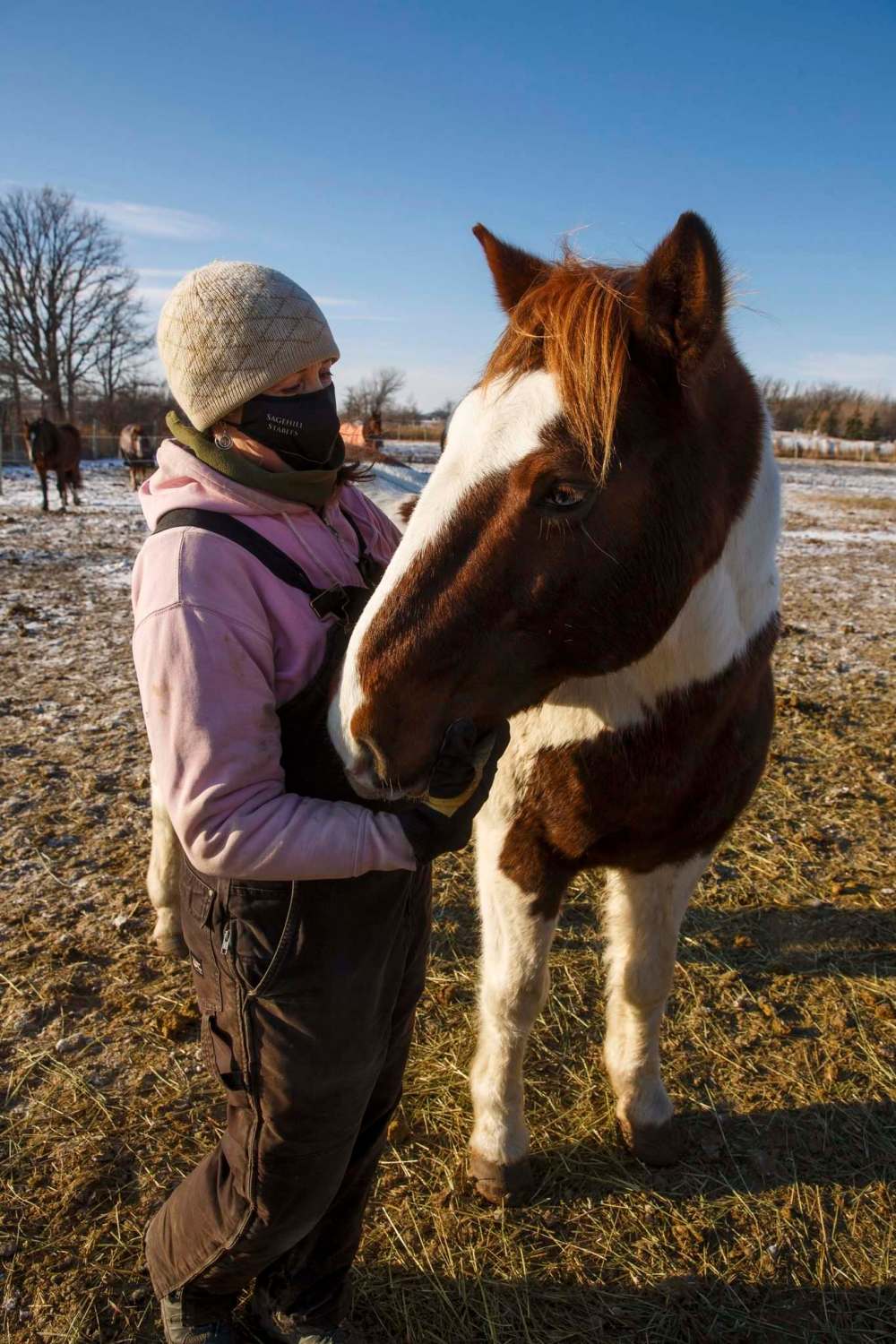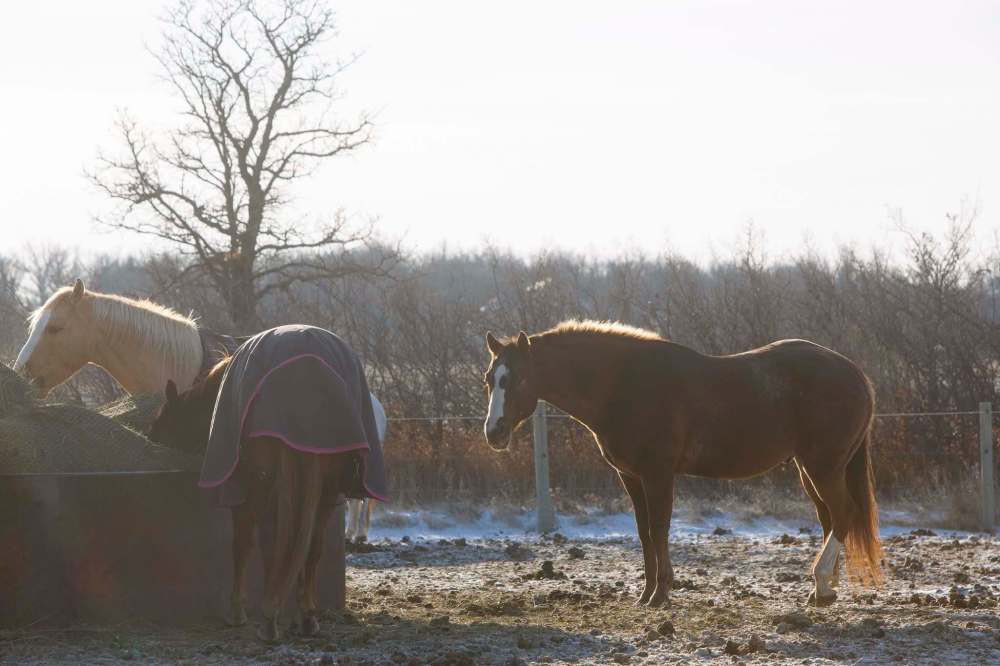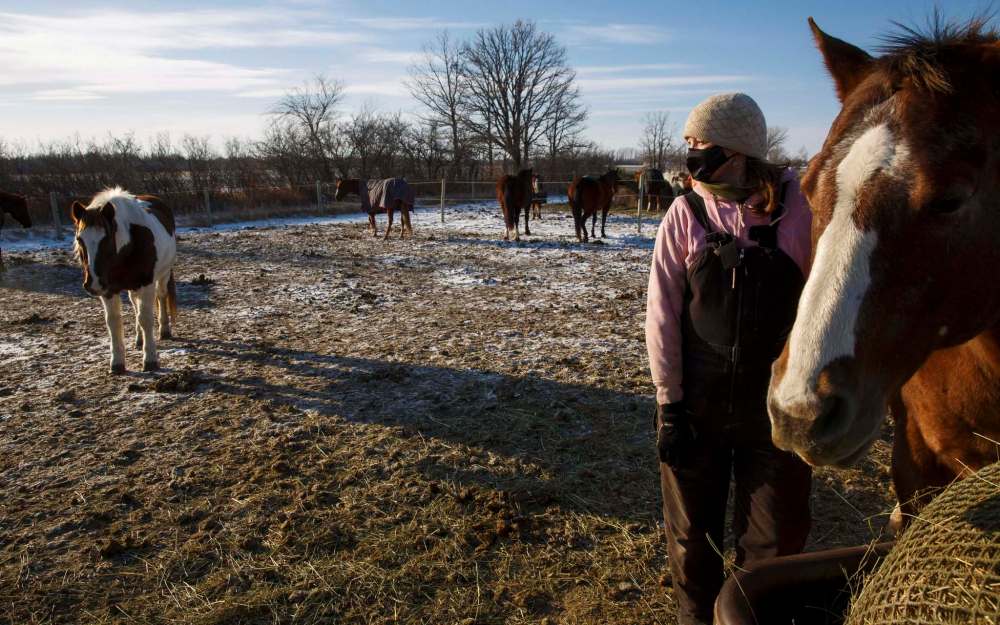Saddled with problems Thanks to the pandemic, horses used for riding lessons are facing an unstable future
Read this article for free:
or
Already have an account? Log in here »
To continue reading, please subscribe:
Monthly Digital Subscription
$0 for the first 4 weeks*
- Enjoy unlimited reading on winnipegfreepress.com
- Read the E-Edition, our digital replica newspaper
- Access News Break, our award-winning app
- Play interactive puzzles
*No charge for 4 weeks then price increases to the regular rate of $19.00 plus GST every four weeks. Offer available to new and qualified returning subscribers only. Cancel any time.
Monthly Digital Subscription
$4.75/week*
- Enjoy unlimited reading on winnipegfreepress.com
- Read the E-Edition, our digital replica newspaper
- Access News Break, our award-winning app
- Play interactive puzzles
*Billed as $19 plus GST every four weeks. Cancel any time.
To continue reading, please subscribe:
Add Free Press access to your Brandon Sun subscription for only an additional
$1 for the first 4 weeks*
*Your next subscription payment will increase by $1.00 and you will be charged $16.99 plus GST for four weeks. After four weeks, your payment will increase to $23.99 plus GST every four weeks.
Read unlimited articles for free today:
or
Already have an account? Log in here »
Hey there, time traveller!
This article was published 17/11/2020 (1859 days ago), so information in it may no longer be current.
Manitoba’s riding-lesson horses are out of a job during code red and the consequences of unemployment could be dire for some animals.
While stables are deemed essential services under the current public health order, riding lessons, which are the main source of income for many barns, fall under recreation.
Sagehill Stables gallops through nearly 150 classes every week at its facility on Waverley Street south of Winnipeg. Owner Gwen Donohoe has had to clear the schedule for the second time this year owing to the coronavirus pandemic and is again grappling with the fact that she might have to sell or euthanize some of her 17 lesson horses, or “schoolies,” to keep the business afloat.

“We would try all (other) options before we look at having to put them down,” she says. “But it’s definitely the reality we have to face.”
Donohoe hopes to avoid that last resort with creative fundraising.
On Thursday, Sagehill relaunched the lesson-horse leasing program it piloted during the first lockdown.
Clients and local equestrians can sign up to take care of a schoolie for $200 a month, which covers a portion of the animal’s food, vet care and farrier (horseshoeing) needs. Prior horse experience is necessary, since leasers are also asked to visit the stable weekly to help fill the labour gap left by laid-off staff.
“Horses need things every day, like getting groomed and getting their medicines and getting their feet cleaned,” Donohoe says. “(Leasers) wouldn’t be able to ride them, just groom them and take care of them like they were their own horse.”
Sagehill employs more than a dozen coaches and barn staff who care for the schoolie herd and the privately owned horses boarded at the stable. At the moment, Donohoe and her husband are handling the bulk of the daily chores.
“It’s a full eight- to 10-hour day,” she says.
The stable is also looking for people to foster horses during the lockdown and is planning virtual horse get-togethers for students.
In the spring, Donohoe was able to find someone to help every horse in need.
“It was really heartwarming,” she says. “Hopefully we can get them all covered and hopefully the lockdown won’t last longer than four weeks this time.”
Lesson horses represent a significant investment. They’re usually older horses selected for their easygoing disposition and have been specially trained to stay calm around young, inexperienced riders.

“If you’re financially forced to get rid of your schooling horses, it’s not as if you’re going to be able to replace them in the following year,” says John Savard, executive director of the Manitoba Horse Council. “From a business standpoint, that’s a serious problem.”
The Horse Council represents more than 2,000 riders, clubs and stables across the province. Many members struggled to make ends meet during the spring, but were able to bounce back when lessons and competitions resumed in the summer.
“It did prove to be a very busy season for schooling barns and then code red came along,” Savard says. “It’s anybody’s guess how long they will be sort of held back from any activity.”
At Maplewood Farms on McCreary Road, owner Kayla Kuebler is out more than $3,000 a week after shutting down her lesson program.
The barn specializes in competitive western dressage and has 40 horses on site, as well as goats, rabbits, chickens and ducks. Horses are no longer able to graze on pasture and Kuebler is going through two round bales of hay each day.
“The feed costs are always higher in the winter,” she says. “(And) feed costs have gone up; we used to pay $80 for a round bale and now we’re paying $165.”
“Right now, rehoming isn’t really an option for a lot of them, because nobody can really afford to take on more animals.” – Maplewood Farms owner Kayla Kuebler
Maplewood also has more mouths to feed than usual.
“We hold neglected and seized animals for the province,” Kuebler says. “We’re seeing higher and higher numbers of animals coming in.”
As owners are struggling to cover costs during the pandemic, more horses and livestock are being sold at auction. Kuebler, an equine nutritionist, works to rehabilitate the animals — which can be anything from horses to cows to llamas — with the goal of finding them another home.
“Right now, rehoming isn’t really an option for a lot of them, because nobody can really afford to take on more animals,” she says.

Sarah Biron, owner of Misty River Ranch in Île des Chênes, had to sell four of her lesson horses during the first wave of the pandemic. It was a difficult decision, but “the other horses had to eat.”
“That helped to get us through that particular period,” she says. “You do what you’ve got to do, right?”
The financial hardship is made worse by the fact that most stables don’t qualify for pandemic relief.
“We fall between very many government programs,” Biron says. “We don’t have enough of a wage bill… or we’re too big, or we’re not big enough, so we haven’t had a penny of government assistance.”
To prepare for the anticipated second wave, Biron spent the summer saving money and squirrelling away feed. Right now, the hay barn is full and Misty River is riding high heading into winter.
“We’re lucky,” she says. “But when the hay runs out, which will be next July, then we might be in a different situation… if the income isn’t there, more horses will have to be sold or the lesson program will be lost forever.”
eva.wasney@freepress.mb.ca
Twitter: @evawasney

Eva Wasney has been a reporter with the Free Press Arts & Life department since 2019. Read more about Eva.
Every piece of reporting Eva produces is reviewed by an editing team before it is posted online or published in print — part of the Free Press‘s tradition, since 1872, of producing reliable independent journalism. Read more about Free Press’s history and mandate, and learn how our newsroom operates.
Our newsroom depends on a growing audience of readers to power our journalism. If you are not a paid reader, please consider becoming a subscriber.
Our newsroom depends on its audience of readers to power our journalism. Thank you for your support.







